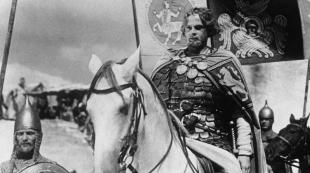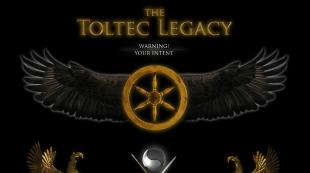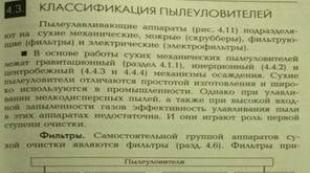Winged Latin phrases and expressions. Expression Winged Expressions of the Middle Ages
Don't lose it. Subscribe and receive a link to the article in your mail.
V modern world we often come across catchy Latin expressions. Generic mottos and advertising slogans, quotes in fiction and scientific literature, even everyday speech provide us with a huge variety of catch phrases, sayings and proverbs, either based on Latin expressions or directly citing them.
But the widespread existence of Latin expressions is a phenomenon characteristic only of the last few centuries and associated with the widespread dissemination of mass culture. In the Middle Ages and Modern Times, knowledge and understanding of even elementary Latin was the lot of aristocratic circles and the scientific community.
How did some of those Latin proverbs that we repeat almost daily come about? What great figures of antiquity and the Middle Ages are they associated with? Under what circumstances were they spoken, and how have they changed today? Let's try to understand these issues.
Wisdom of the Ages: Sayings of Ancient Scientists in Latin
The ancient Greeks, and later the Romans, highly valued science and education. Pundits were often under the patronage of influential magnates, and even the rulers of ancient cities and tyrants.
It is precisely such a high position that the great mathematician and engineer Archimedes (III century BC) occupied in Syracuse under the tyrant Hieron. During the Second Punic War, his inventions more than once or twice saved the inhabitants of the city from the capture of it by the Romans. Even the Roman consul Marcellus, who opposed Hieron, highly appreciated the merits of Archimedes. Book XXVI "Historical Library" by Diodorus of Siculus describes the death of 75-year-old Archimedes: he was killed by a Roman soldier for refusing to go with him. According to legend, Archimedes was so immersed in his drawing that he dismissed it, saying to him: “ Noliturbarecirculosmeos!"(Don't touch my circles!). There are also other versions of this catch phrase, for example: “ Noliobsecroistumdisturbare!"(I conjure, do not touch him [drawing]!), Valery Maxim (" Memorable deeds and words. "Book VIII, chapter 7.7). It is interesting that at the Faculty of Physics at the Ludwig-Maximilian University in Munich there is a wall with a bas-relief, where just the learned elder threatens the Roman conqueror with a sword.
Another famous winged expression of antiquity was the maxim, carved on the stone of the temple of Apollo in Delphi: "Know thyself" (Greek Gnothi seauton, lat. Nosceteipsum or Temetnosce). The authorship of this phrase is controversial: Diogenes Laertius attributes it to Thales of Miletus, and medieval philosophers to Thales and Chilo. Plato said that Socrates used this phrase as the beginning of many of his dialogues; later it took on a more extensive form: "Know yourself - and you will know the whole world." In the Middle Ages, this maxim was understood as a call to avoid obeying the opinion of the crowd.
The mighty of this world and Latin: from war to peace and vice versa
It should be noted that the rulers often brought to light catch phrases and expressions that survived the centuries. One of the greatest generals and statesmen of the ancient world, Gaius Julius Caesar, according to the Greek historian Plutarch, when crossing the Rubicon River on January 10, 48 BC. uttered a phrase that was destined to survive for centuries: Aleajactaest(Die is cast). It was from this moment that Caesar's campaign against Wrath of Pompey the Great began, which led Caesar to absolute power in the Empire. At that moment all the circumstances were against him: Pompey's superiority in the number of legions; the hostile aristocracy of Rome; lack of sufficient political weight in the Roman Senate. However, the speed of decision-making ensured Caesar's continued success. And to this day, his statement is pronounced in a situation when a decisive choice and perseverance in achieving a goal is required.
The phrase of Caesar, with which he described his victory over Pharnacs, king of the Bosporus kingdom, in 47 BC, became truly great. At that moment, Pharnaces had significant forces and incited many kings of Asia Minor to revolt against the Romans, and Caesar, having only three legions, decided to attack sharply and swiftly. Having exterminated almost the entire army of Pharnaces, Caesar sent a letter to Rome to his friend Matius, in which he described his triumph in just three words - “ Veni,vidi,vici"(He came, saw, conquered - Plutarch. Caesar, chapter 50). Plutarch, who compiled the biography of Caesar, noticed that in Latin these three words - with the same endings and consisting of only two syllables - "create the impression of convincing brevity." Subsequently, celebrating the Pontic triumph on his return to Rome, Caesar ordered to carry tablets with this phrase (Suetonius. "Divine Julius", chapter 37).
The emperor of Rome, Octavian Augustus, used to talk about bad debts that they would be paid by the Greek calendars (“ AdKalendasGraecas"), Ie never (Suetonius. "Divine Augustus", chapter 87). This expression, like the phrase "Paulo post futurum" (an approximate translation - "a little time after the future comes"), was a play on words in its purest form: calendars in the Roman calendar were called the day that preceded the first day of the next month ( for example, the June calendars came on May 31), while in the ancient Greek policies there was no single calendar. In addition, there were no calendars in any of the Greek calendars.
Another catch phrase, which was taken as his own motto by the Italian Cesare Borgia, one of the most influential representatives of his kind in the game. XV-early. XVI centuries. - " AutCaesar,autnihil"(Or Caesar, or no one). These words expressed his boundless desire for power through the unification of the Italian lands. Initially, the phrase sounded somewhat different: “ Autfrugihominemesseoportere ...autCaesarem"(" You must be either a prudent person or Caesar "), and their author was the Roman emperor Caligula (Suetonius." Guy ", chapter 37). As you know, Caligula led a dissolute lifestyle, drowning in luxury, making insane spending on amusements, for which he paid with his own life. Thus, an expression that initially emphasized the negative aspects of human nature, after a millennium and a half, became a reflection of ambition and courage.
Medieval writers and philosophers: a return to antiquity
Medieval thinkers and philosophers also made a huge contribution to the creation of Latin sayings and aphorisms. For example, Thomas Hobbes in his work "On Man" (1658) proclaims after Francis Bacon (with whom he was a secretary in his younger years): "Knowledge is power" ( Scientiapotentiaest). Meanwhile, the meaning of this expression can be interpreted in several senses. Bacon had in mind Divine power, opposing it to various "delusions" (ie heresies). Hobbes, on the other hand, spoke to a greater extent about the benefits of scientific knowledge for the elite ("Knowledge is a power, but small, since knowledge is rarely allocated; and if it is manifested, then in a few people and a few deeds ..."). Now we understand the meaning of this proverb (by the way, which has an analogue in the Old Testament Book of Proverbs of Solomon) in a completely different way: as proof of scientific and technological progress and the steady movement of society forward on the basis of scientific achievements.
The great mathematician and philosopher of the 17th century. Rene Descartes formulated in Latin the primary truth, which cannot be doubted and on the basis of which all modern rational knowledge is built - "Cogito ergo sum" (I think - therefore I exist). He subsequently supplemented this very statement with an important detail: the fact of thinking and even the existence of a person can be questioned, but the very fact of the appearance of doubt is undeniable. Hence the famous formula is born: “ Dubitoergosum"(I doubt - therefore I exist). One of the ideological predecessors of Descartes in this can be called Blessed Augustine, Bishop of Hippo (late IV-early V centuries), the author of the work "On the City of God." He answered the objections of the educated people of his time: “If I am deceived, then this is why I already exist. For who does not exist, he cannot, of course, be deceived: I, therefore, exist if I am deceived ”( Sifallor,sum). However, Augustine opposed his views primarily to the pagan environment, which was critical of his evidence for the existence of God; Descartes, on the other hand, was forced to fight clerical obstacles (including with the "Aristotelian-Christian synthesis", expressed in reliance on the authority of sacred texts and mentors) in relation to science.
The writers of the Middle Ages and the Early Modern Age also contributed greatly to the "creation" of Latin expressions that we today attribute to the philosophers of Antiquity. For example, Miguel Cervantes de Saaverda in the second part of his novel about Don Quixote (1615) contains an expression attributed to Aristotle: “ AmicusmihiPlato,sedmagisamicaveritas" (Plato is my friend but the truth is dearer). The fact is that Plato and Aristotle were the greatest philosophers and scientists. Ancient Greece in the IV century. BC, both were engaged in the education of students, but at the same time their views on the world and nature were strikingly different. Probably one of the few points in the knowledge of the surrounding reality, which was common to both philosophers, was the unconditional primacy of truth over the opinion of the most authoritative teacher. So, Plato in the dialogue "Phaedo" addressed his disciples through the lips of Socrates: "Following me, think less about Socrates, and more about the truth." We meet a similar version in Aristotle: "Socrates is dear to me, but the truth is dearer than anything else." A thousand years later, the name of Socrates was replaced by Cervantes in the name of Plato, and in this form the phrase became world famous.
Of course, this set of catch phrases by no means exhausts all the multicolor Latin... Both Antiquity and the Middle Ages gave us great amount catchphrases about which a lot could be said and written. Probably, every person interested in world culture, outstanding works of painting and literature, could make his own list of proverbs and sayings in Latin, which he periodically uses when communicating with others, in business correspondence, etc.
Maybe those who read this article should write in the comment form (with a little explanation) the most outstanding catch phrases in order to draw the attention of other people to this problem?
From the guest >>
A number of popular expressions of antiquity and the Middle Ages arose in connection with well-known historical events. Fill in the gaps by inserting names, place names and the "catch phrases" themselves, which you enter under the corresponding serial numbers in the table.
Mindful of the legendary medieval king __1__ and its knights, an impartial exchange of views between the participants of any meeting is called " ___2___ "... About the simple-minded, naive a person who, in his ignorance, does not know what he is doing, they say the same as he once said __3__ an old woman throwing brushwood into the fire on which it was burned: "___4___". A humiliated person recalls an episode related to the confrontation of the pope ___5___ with the Holy Roman Emperor ___6___, that went down in history under the name ___7___ ... Remembering the famous king __8__ who ruled the kingdom ___9___, about something that came at an exorbitantly expensive price, they say: ___10___ ... When we want to show that someone is possessed by an obsession, a thought that cannot be knocked off, and when we need to point out a real, constant and formidable danger, until the elimination of which normal life is inconceivable, we recall the Roman senator ___11___ and we say ___12___.
Insert №Insert
1) 7) 2) 8) 3) 9) 4) 10) 5) 11) 6) 12)
And yet she turns- the legend attributes these words to the great Galileo Galilei (1564-1642) - astronomer, physicist, mechanic. Summoned to the court of the Inquisition for his adherence and propaganda of the Copernican doctrine of the movement of the Earth around the Sun, he was forced, kneeling before the tribunal, to swear to renounce "heresy." According to legend, getting to his feet, Galileo exclaimed: "eppur si muove" ("But she still turns"). This phrase has become a catch phrase and is used as an expression of unshakable conviction in something.
Álma máter(lat. Alma mater - “nursing mother, nursing mother) - an expression that comes from the name of the university by medieval students who ate spiritual food there. It is used today in a joking or endearing sense.
Arabian tales- the expression is used when they meet with something extraordinary, surprising, unexpectedly successful and auspicious, which can be compared with the miracles of Arabian fairy tales from the collection “A Thousand and One Nights”.
Asket- see the Dictionary. The word has become a household word for a modern person who leads a modest, even harsh, "ascetic" lifestyle.
Architecture - frozen music- the expression of Johann Wolfgang Goethe (conversation with Eckermann on March 23, 1829). Most often used in relation to gothic(See Dictionary, Part I).
Run like the plague. Fear like the plague - in 1348-1349 the countries of Western Europe were struck by a terrible epidemic of the bubonic plague, which claimed the lives of a third to half of the inhabitants. Contemporaries called the plague "Black Death". Plague raged both in villages and in cities, especially in the latter due to the overcrowding of the population and unsanitary conditions. The flight of a group of rich and noble youth from the plague-ridden city became the basis of the plot of the collection of short stories by one of the first Italian humanists Giovanni Boccaccio (1313-1375) "The Decameron". Shocked by the unprecedented disaster, Boccaccio began to write The Decameron in the same year 1348.
Vandals. Vandalism- In 455, the Germanic tribe of the Vandals captured and plundered Rome, destroying or damaging many works of art, priceless ancient manuscripts. The name of the tribe has become a household name and denotes an ignoramus, a barbarian, a destroyer. Vandalism - damage and destruction of cultural or social material values.
St. Bartholomew's night- on the night of August 24, 1572 - the feast of St. Bartholomew - Parisian Catholics, with the blessing of the royal power, staged a treacherous massacre of those who arrived in Paris on the occasion of the wedding of King Charles IX's sister Margaret and their leader Henry of Navarre by the Huguenots. The massacre of the Huguenots in Paris lasted 4 days, and in the provinces where it spread, until October.
In a figurative sense, V.N. began to mean a cruel merciless reprisal.
Great Mogul- Great Moguls (from the distorted "Mongols") Europeans called the rulers from the Baburid dynasty, the descendants of Timur, who conquered India in 1526.
The name became a household name, denoting an extremely wealthy person.
Let's go back to our rams- with these words, in the anonymous French farce "Lawyer Pierre Patlin" (c. 1470), the judge interrupts the stormy stream of reproaches from the rich clothier. The draper, forgetting that the court is hearing a case against the shepherd who stole the sheep from him, directs all his anger to the shepherd's defender - Patlen's lawyer, recognizing him as a man who did not pay him for the cloth he bought.
The expression is applied to those people who are unduly distracted from the main topic of their story (speech, speech, conversation).
Air castles - one of the first fathers of the Christian church of St. Aurelius Augustine (Augustine the Blessed - 354-430) once spoke figuratively in his sermon about "building in the air." The expression was remembered, but later spread in the form of "building castles in the air (or in Spain)." In Russia, the expression became popular in another form, namely "Castles in the air" after the publication of the fairy tale by II Dmitriev with the same name (1794) about a dreamer-dreamer.
The expression "castles in the air" is used when it means unrealizable plans, fantastic dreams, etc.
War of all against all(lat. "bellum omnium contra annis") - the expression of the English philosopher Thomas Hobbes (1588-1679) in the work "Elements of public and civil law" (1642).
All roads lead to Rome- a medieval saying.
World spider- this is how the Duke of Burgundy Charles the Bold (1468-1477) described the French king Louis XI (1461-1483) - a cautious, calculating politician, a great master of behind-the-scenes intrigue and a hypocrite, for the latter's ability to involve almost all European rulers into the sphere of his interests.
The expression became winged.
All is lost but honor- defeated by the troops of the German emperor Charles V in 1525 at Pavu and taken prisoner, the French king Francis I (1515-1547) sent his mother Louise of Savoy a letter, allegedly consisting of only one phrase "Everything is lost except honor." In fact, the letter was very detailed and extensive.
Gall rooster- the ancient Romans called Gauls the Celtic population of Gaul - modern France and Belgium. The Latin word galbus means not only "gall", but also "rooster". According to the French historian A. Blok, the Romans named the Celts of these territories because many of them were red-haired and their tufted hairstyles resembled the combs of roosters. During the Great French bourgeois revolution, a coin was struck with the image of a rooster as a symbol of vigilance. The rooster on the coins was perceived by the French, who considered the Gauls as their ancestors, as a "Gallic rooster", and he began to be perceived as a national idea, as an allegory of France. Caricaturists often began to depict France as a rooster, hinting at the love of life, agility and enthusiasm of the French.
Gaudeamus uguitour(Gaudeamus igitur) - The opening line of the medieval student anthem - Let's Have Fun.
Garýn al-Rashud- more precisely Harun-ar-Rashid (786-809), the Baghdad caliph. In the tales "A Thousand and One Nights" he is presented as a wise and just ruler, the father of the people, the patron of the arts. The real Harun-ar-Rashid was extremely far from this idealized image.
State within a State- using the weakening of central power in the early years of the reign of the young French king Louis XIII, the Huguenots (see Dictionary) at the end of the second decade of the 17th century. started an uprising and proclaimed their Huguenot republic in the south of the country, creating a kind of "state within a state". For the first time this expression is found in the work of the French writer Agrippa d, Aubigne (1552-1630) "On the duties of the king and subjects" (written between 1610 and 1620). The action of the Huguenots was suppressed in 1629 under the leadership of Cardinal Richelieu.
The expression was preserved and began to be applied in relation to any organization or group of people who put themselves in exclusive, privileged conditions that do not take into account the interests of others.
The state is me- these words were allegedly uttered by the French king Louis XIV (1643-1715) at a meeting of parliament in 1655. These words are, as it were, the quintessence of absolute monarchy. Now this expression is used to characterize individuals who are engaged in a leading position in any field of activity and who create complete arbitrariness.
Don Juan. Don Juanism- Don Juan (Juan) - the hero of an old Spanish legend, red tape, who spends his life in love adventures. In world literature, there are more than a hundred works, the plot of which is inspired by this legend. The most famous are the plays of the Spanish playwright Tirso de Molina (1572-1648) The Seducer of Seville (1630) and J.-B. Moliere (1622-1673) Don Juan (1665); in Russian literature - the drama "The Stone Guest" by A.S. Pushkin and the poem by A.K. Tolstoy "Don Juan". The plot of this legend is the basis of Mozart's opera Don Giovanni (1787).
Don Kihut. Knight of the Sorrowful Image – the main character the novel by the great Spanish writer Miguel Cervantes de Saavedra (1547-1616) "The Glorious Knight Don Quixote of La Mancha" (1605-1615). Don Quixote is a poor nobleman, old and lonely, a lover of old knightly novels, after reading which he lost all understanding of reality and imagined himself a wandering knight. Don Quixote's fantasies push him to imaginary great deeds, which in reality are absurd, ridiculous and pathetic, for example, mistaking windmills for giants, he fights with them, etc. As a result of these absurdities and misunderstandings, Don Quixote gets bruises and bumps. The pitiful sight of the beaten gentleman makes Sancho Panza think of calling Don Quixote the Knight of the Sad Image. Don Quixote's name has become a household name, they call him a kind, but divorced person from life, a dreamer who enters into a useless struggle with real or imaginary evil, without measuring his strength.
Dulcine (Dulcine)- Don Quixote in the novel of the same name by Cervantes called his noble “lady of the heart”, who was actually a burly and rude peasant Aldonza, “The incomparable Dulcinea of Tobossa”. The name D. has become a jokingly common noun for a beloved woman, beloved.
If the mountain does not go to Mohammed, then Mohammed goes to the mountain- one of the most common variants of the origin of this expression is the story given by the English thinker Francis Bacon (1561-1621) in his "Moral and Political Essays" that Mohammed (Muhammad) promised the people by force of his order to move the mountain and when he did not succeeded, without bewilderment, declared the following: “Well, since the mountain does not want to go to Mohammed, Mohammed will go to it himself” (essay “On Courage”).
There are many things in the world, friend Horatio, that our wise men never dreamed of.- A quote from W. Shakespeare's tragedy "Hamlet" (act 1, scene 5, words by Hamlet).
If not me, then who?- The words belong to Jeanne d, Ark (1412-1431) - the national heroine of France. Answering the question about the reasons for leaving home without the knowledge of her parents, Jeanne said: “No one in the world ... will save the French kingdom and will not help it. Except for me. If not me, then who? " The expression means a dire need to personally fulfill an extremely difficult duty or duty.
Go to Kanessa- The German emperor Henry IV (1056-1106) entered into an acute political struggle with the papacy on behalf of the powerful and ambitious reformer of the Catholic Church, Pope Gregory VII (1073-1085), who claimed to subjugate all the secular states of Europe. Henry IV categorically refused to obey the pope and, having convened a council of German bishops in 1076, achieved the declaration of the pope deposed. The Pope, in turn, cursed Henry IV, excommunicated him and freed all his subjects from the oath of allegiance. Dissatisfied with the imperial power that had increased by that time, the German princes, taking advantage of the situation, agreed not to recognize him as king if he remained in excommunication for more than a year. Henry IV, finding himself in a hopeless situation, was forced to beg the Pope for forgiveness. For this, having crossed the Alps, in January 1077, on foot, barefoot and in rags, he appeared under the walls of the castle of Canossa, where the Pope was then, and stood on his knees for three days until the Pope accepted his repentance. The expression "go to Canossa" became a winged one, meaning the need to go to reconciliation with the enemy, even at the cost of humiliation.
Kaluf (haluf) for an hour- so they say about a person who has gained power for a short time. The expression arose from the title of the tale "A waking dream, or caliph for an hour" from the collection of Arab tales "A Thousand and One Nights". The plot of the tale is as follows. The young Baghdadi Abu Ghassan met a visiting merchant and invited him to visit, not suspecting that in front of him was the disguised Caliph Harun al-Rashid. Having opened his heart, Abu-Ghassan told the guest about his cherished place - to be in the place of the caliph at least for a short time. Imperceptibly, Harun al-Rashid pours him sleeping pills, and the sleeping Abu Ghassan is carried to the Caliph's palace. The courtiers are ordered to obey Hassan in everything. Waking up, Hassan discovers that he has become the caliph. All day long he enjoys the luxurious life in the palace and gives various orders. In the evening, he is again imperceptibly mixed with sleeping pills and taken home. In the morning, Hassan cannot understand what happened to him the day before - a dream or reality.
Insidious Albin- Albion is the ancient name of Britain. In Russian pre-revolutionary literature, the expression "insidious Albion" was widely used, meaning England. Probably, this expression was first used in the chronicle of Otto of St. Bazensky (beginning of the 13th century), in which he, by "insidious England", means the actions of the English king Richard the Lionheart (1189-1199) during the III Crusade. The expression was remembered, but it was somewhat transformed during the times of the Great French bourgeois revolution and the empire of Napoleon. In the conditions of sharply aggravated Franco-English relations and an increased interest in ancient history and its heroes, the combination “insidious Albion” appeared, which became especially popular after England violated the Peace of Amiens in 1803. Further political realities of the 19th century. made this expression widely used.
Kolumbov egg- the expression goes back to a medieval Spanish anecdote, the essence of which is that many wise men and craftsmen tried in vain to put an egg on the table vertically with a sharp end, and only the simpleton Juanelo guessed to flatten the end of the egg by hitting the table. This is how the Spanish expression Huevode Juanelo (Juanelo's Egg) originated. Later, the anecdote about the egg put on a sharp end was included in various literary works. One of these stories was associated with the name of Christopher Columbus (1451-1506). Benzoni in his "History of the New World" (1565) told the following story: after the first voyages of Columbus, when many others began to follow in the footsteps of the strange navigator, in one of the conversations the interlocutor told Columbus that his voyage was not too difficult; Columbus suggested that this man put an egg, but he, of course, could not do it. Then Columbus set the egg himself, first knocking on its end slightly, noting that it was not difficult. The expression "Columbus's egg" is used to refer to an original, bold and unexpected solution to a complex problem.
Columbus Russian- words from the unfinished poem "Peter the Great" by MV Lomonosov:
Columbus of Russia, disdaining gloomy rock,
Between the ice a new path will open to the east,
And our country will reach America.
In an ode of 1747, M.V. Lomonosov, referring to Vitus Bering (1681-1741), wrote:
Russian Columbus across the waters
In a hurry to unknown peoples.
The expression is used on solemn occasions, when referring to the heroic pages of the history of the Russian fleet.
Conquistadors(see Dictionary) - in a figurative sense, gross, cruel conquerors, robbers.
King Lear- the hero of the tragedy of the same name by W. Shakespeare (1608), the old king, expelled from his home after the division of the inheritance by his ungrateful daughters. His name has become a household name.
The king reigns but does not rule- for the first time this expression in Latin (Rex regnat sed gubernat) was used by the Polish hetman Jan Zamoyski (1541-1605) at one of the meetings of the general Polish Sejm.
The king is dead, long live the king!- the traditional medieval formula, adopted in European monarchies, proclaimed by the royal heralds to the population when the ruler changes. Today, the expression is used when it comes to a person who easily changes his views and beliefs, depending on the interests of the momentary situation. Such a person is also compared to a weather vane; the meaning of the expression is similar to the proverbs "keep your nose to the wind" and "feel where the wind is blowing."
Crusade(see Dictionary, part I) - now under K.p. in a figurative sense, it usually means purposeful opposition, persecution or persecution by reactionary or conservative forces to manifestations of dissent in any area of social, scientific or cultural life; in this sense, the expression is analogous to "witch hunt". In everyday life, K.p. often used humorously and ironically.
Round table- in medieval Western Europe, a cycle of knightly novels about King Arthur and the Knights of the Round Table was very popular. In one of these novels, the wizard Merlin gives the idea to the British king Uther (Arthur's father) to create a knightly order of the Round Table. The knights, following the round table at the royal feasts, felt equal, because there were no better or worse places. The idea of the "round table" was adopted in international politics to emphasize the equality of all the parties to consult or negotiate. The expression "round table" has entered our life also to designate any event related to the discussion of a problem, where different points of view are freely expressed and objectively evaluated.
Who Can't Pretend Doesn't Know How to Reign- words of the French king Louis XI (see the World Spider).
Potted chicken (soup)- The French king Henry IV the Great (1589-1610) allegedly once said to the Duke of Savoy: “If God prolongs my life, I will ensure that not a single peasant remains in my kingdom who would not be able to have a chicken in his pot "(H. de Péréfixe. Histoire du roy Henry le Grand, 1861). This phrase became winged in the following wording: "I would like every peasant to have his own chicken in his soup on Sundays."
Flying Dutchman- in the Netherlands, where people's lives were inextricably linked with the sea, many tales and legends about sailors were composed. One of the legends told of a brave navigator who vowed to go around the cape blocking his path despite a storm raging on the sea, even if it took forever. For his self-confidence and pride, he was punished by becoming an eternal wanderer through the stormy seas and oceans. Legend has it that his appearance foreshadowed the death of a ship that met on his way. The legend probably appeared in the era of the great geographical discoveries. It is likely that the historical prototype of the fearless sailor was the Portuguese navigator Bartolomeu Dias, who was the first to round the Cape of Good Hope after completing his expedition. In the XVII century. this legend was mainly associated with the name of the Dutch captains, which is reflected in its name. The expression "Flying Dutchman" is applied to people who are in constant motion, to lovers of travel, tourism, as well as to "flyers" at work.
Magisterdixit(master dixit) - translated from Latin - "so the teacher said." This was the usual reference by the scholastics to the unquestioned authority of Aristotle as the only argument. Today they say so meaning a speech, a statement, etc., devoid of an evidence base and supported only by a reference to someone else's authority.
Bourgeois in the nobility- the title in the Russian translation of Moliere's comedy "Ze Bourgeois gentilhomme" (1670), in which the bourgeois Jourdain is ridiculed, striving in every way to penetrate high society and blindly imitating the nobility in everything. All his attempts to be like a nobleman look ridiculous and ridiculous. These words denote an upstart. Russian analogue - "From rags to riches".
Much ado about nothing- the name of Shakespeare's comedy (1600), which has become a proverb. Similar to the one that appeared in the 18th century. expression of the French political thinker Montesquieu (1689-1755) - "A storm in a glass of water."
Silent means consent- the expression of Pope Boniface VIII (1297-1303), formulated in one of the letters. Goes back to Sophocles (496-408 BC), in whose tragedy "The Trakhine women" there is the phrase "Don't you understand that by silence you agree with the accuser?"
Wisdom is the daughter of experience- the aphorism belongs to the brilliant Italian painter, sculptor, architect and poet Michelangedlo (1475-1564).
Master(see Dictionary, Part I) - the concept came from the medieval craft, means a real master of his craft, so respectfully called outstanding figures of art, science, literature.
On this I stand and I cannot do otherwise- words from the speech of the pioneer of the European Reformation Martin Luther (1483-1546) at the Worms Reichstag on April 18, 1521, where he was summoned to explain and allegedly renounce his beliefs in the presence of the new German emperor Charles V. But Luther, knowing that in in case of refusal to renounce, he will face inevitable persecution and possibly the fate of Jan Hus, showed firmness of mind, did not go against his conscience and rejected the renunciation. The final words of his speech became winged.
Something is not good in the Danish kingdom- one of the versions of the translation of the words of Marcello in Shakespeare's tragedy "Hamlet" (act 1, phenomenon 4). This expression means latent trouble in some business.
"Invincible Armada"- a huge military flotilla of the Spanish king Philip II, named because of the confidence in victory "Invincible Armada" ("armada" - a large fleet), was sent in 1588 to conquer England. Small English ships, well equipped with artillery, met the Spaniards in the English Channel. The battle lasted more than a week, the British won a brilliant victory. The remainder of the "NA" was forced to go north in order to bypass England to return to his homeland. The storm, which began in the North Sea, completed the inglorious death of the Spanish fleet. The expression is used in an ironic sense.
There is no god but God, and Mohammed is his prophet- two main indivisible dogmas of Islam. The expression is used ironically.
There is no sadder story in the world- the words of the duke, concluding Shakespeare's tragedy "Romeo and Juliet" (1597).
New World- it is interesting that Columbus himself was the first to use this expression, albeit as a comparison, describing in one of his letters the impressions of the lands he discovered. Humanist scientist Petrus Martyr Anglernus, six months after Columbus returned from the first expedition, expressed a brilliant guess that Columbus had discovered the "New World" (novus orbis). For the first time officially this phrase sounded in the same year 1493, when, by decree of the Spanish king Ferdinand V Catholic, Columbus was granted a coat of arms with the motto: "For Castile and Leon, Columbus found the New World." True, the expression of N.S. here, most likely, it was understood as the name of only a new country that came under the rule of the Spanish crown. Scientific evidence that Columbus "discovered, as you can see, a new part of the world" in 1503 was brought by the Italian navigator Amerugo Vespucci ", who sailed in the footsteps of Columbus to new lands. The published letters of Vespucci were so widely known in Europe that the German cartographer Waldseemüller in 1507 marked the new continent on his maps under the name Amerigo Vespucci. Expression of N.S. became winged, it is constantly used today, especially when opposing America and Europe, which has now become the Old World.
With fire and sword- Initially, the expression probably goes back to the most effective and radical methods of ancient medicine - surgery and cauterization with fire to stop bleeding and disinfect. Thus, the famous ancient Greek physician Hippocrates (5th century BC) said: "What medicine does not heal, then iron heals, what cannot heal iron, it is healed by fire." Later, in the 1st century BC. Roman poets (for example, Ovid and others) began to use this expression in a different sense - the merciless destruction of the enemy with weapons and fires. The expression became especially popular after the publication of the novel "Fire and Sword" by the Polish writer Heinrich Sienkiewicz (1846-1916). As a rule, it has now begun to be used figuratively as a ruthless, extremely cruel destruction of something. Very often, these words characterize actions related to medieval history (suppression of popular uprisings, campaigns of the German crusaders against the Slavs, punitive expeditions in general, violent Christianization - for example, Indians in America, etc.).
She fell in love with me for the torment,
And I am her for compassion for them
The words of Othello from the tragedy of the same name by W. Shakespeare "Othello, the Venetian Moor" (1604), said by him about Desdemona and the emergence of mutual feelings between them. The expression is most often used ironically.
Holy simplicity!- according to legend, these words are pronounced by the Czech national hero, the denouncer of the vices of the Catholic Church, Jan Hus (1369-1415), condemned by this church at a cathedral in Constance and sentenced to be burned at the stake. These words escaped him when he saw that some old woman, in religious ecstasy, had thrown an armful of brushwood into the flaring fire. This expression is often used in Latin: "O sancta simplicitas!"
From boards to boards- most often these words are pronounced when they carefully read a book from beginning to end or study a binder of any documents. The expression has its roots in the Middle Ages, when the covers of books were made from plaques covered with leather.
Otello- the protagonist of Shakespeare's tragedy of the same name, the Venetian Moor, who, believing the slander, in a fit of jealousy strangled his wife Desdemona. O.'s name has become synonymous with jealousy.
Discover America- an ironic expression, similar in meaning to the words "Invent the bicycle" or "The Volga flows into the Caspian Sea."
"Witch-hunt"(see Dictionary, Part I) - mass trials against "witches" in the 15th-17th centuries, organized by the ecclesiastical and secular authorities and encompassed all countries (both Catholic and Protestant). The official methods of investigation are set out in the book of the monks-inquisitors Institoris and Sprenger "The Hammer of the Witches". The investigation sought recognition of the victims by such legalized methods as monstrous torture, deception, provocation, etc. Denunciation, word of mouth, etc. were enough to initiate a case. As a rule, the trial ended with a conviction. The convicts were sent to the fire (see Autodafe), and their property was subject to confiscation. The expression has moved into the sphere of public policy, when large-scale persecution of dissidents is declared for political purposes.
Panurgov herd- the expression is used to characterize a group of people, a crowd, in a blind impulse following someone. Arose from the description of an episode in the novel by the French humanist writer Francois Rabelais (1494-1553) "Gargantua and Pantagruel" (1534). Passenger Panurge, one of the heroes of the novel, quarreled with a merchant who was transporting a flock of sheep on a ship. Offended Panurge decides to take revenge on the merchant. For a lot of money, he buys the largest ram from a merchant and throws it overboard. The whole flock immediately rushed after their leader, dragging along the merchant who was trying to stop the sheep.
Paris is worth Mass (Mass)- during the Huguenot wars, after the assassination of the French king Henry III, the Valois dynasty was suppressed (1589). Royal power was supposed to pass to the representative of the side branch of the dynasty, Henry of Bourbon, king of Navarre, but the Catholics did not want to see the Huguenot king on the throne (see Dictionary, part I). The wars continued. Especially strong resistance was put up by Heinrich Paris. The Protestant religion of Henry of Navarre became an obstacle to ending civil wars that had lasted for more than three decades. Henry decides to convert to Catholicism once again (he already had to do this under the threat of death on St. Bartholomew's Night). “Paris is worth a mass,” - so according to legend, the future king said. In July 1593 he publicly renounced Calvinism, and in February 1594 he was crowned as the rightful king of France under the name of Henry IV. The descendants named him Great.
The expression means the need to compromise in order to achieve an important goal.
First among equals- the expression goes back to the time of the first French kings from the Capetian dynasty (from the end of the 10th century), who were looked at by the royal vassals - dukes, marquises and counts.
The position obliges- one of the basic rules of knightly honor, obliging knights to always act in accordance with the requirements imposed by the title of knight.
A word of praise for stupidity- the name of the satire of the outstanding representative of the Northern Renaissance Erasmus of Rotterdam (1469-1536). Used in the sense: stupidity, absurd judgment, expressed with aplomb, categorically.
The subjects have no rights, there are only duties- the words of the French king - "Sun" Louis XIV (1643-1715).
Puritan(see Dictionary, Part I) - a characteristic of a person who is distinguished by excessive severity of tastes, habits, and lifestyle.
The link of times broke up- the words of the Danish prince Hamlet from the tragedy of the same name by Shakespeare (1601).
Romeo and Juliet- the names of the heroes of the tragedy of the same name (1597) by W. Shakespeare, which has become a household name for a couple in love.
Rosinant- this is the name Don Quixote called his horse (see Dictionary, Part II). In the description of Cervantes, R. resembles a living skeleton (in Spanish Rocin - horse, ante - before). Since then, the name R. has become a household name for an old, emaciated, emaciated horse.
A knight without fear or reproach- this is how the contemporaries of the French knight Pierre Théray de Bayard (1473 / 1476-1524) called him, this is how he is called in the book “The most pleasant, funny and restful story, composed by an honest servant about the events and deeds, successes and deeds of a good knight without fear and reproach, glorious lord Bayard ... "(1527). In battles, B. was distinguished by unparalleled courage and nobility. Twice he was captured, and both times he was released without ransom in recognition of his military prowess. After the death of B., both warring armies concluded a truce for a worthy burial with military honors for the hero's body. The same honorary nickname was given to another compatriot and contemporary of B., the outstanding commander Louis de la Tremoy (1460-1525).
Now this expression is used to characterize a brave, courageous person with high moral principles.
Burn the ships- the prehistory of this expression is rooted in antiquity. History knows several events associated with actions that cut the road back. One of the most famous cases is the burning of all their ships by the conquistador (see Dictionary, part I) by Hernan Cortez (1485-1547) before the start of the conquering expedition against the Aztecs in order to cut off their soldiers' escape route: they only had to go forward (1519) ...
The expression means: such decisive measures have been taken that make it impossible to return to the previous state, leaving the only way out - moving forward towards the intended goal.
The expressions “Cross the Rubicon” (Julius Caesar, 1st century BC) and “Put everything at stake” have a similar meaning.
Sesame, open up (open up)- an expression from the first French translation (1704-1708) of the Arabic fairy tale "Ali Baba and the Forty Thieves", included in the collection "A Thousand and One Nights" (See Dictionary). These words are not in the originals, but since then they have become an integral part of it.
The expression is often used in a joking sense when intending to penetrate a secret, overcome an obstacle, etc.
Blue Beard- the character of an old French fairy tale, processed in 1697 by Charles Perrault, published under the title "Raoul, Knight of the Bluebeard." Her hero, a bloodthirsty knight, kills his wives for being overly curious. Since then, the nickname Bluebeard has become a household name for a jealous cruel husband. But, as some researchers believe, the fairytale character had a terrible real prototype - Baron Gilles Laval de Retz (Re), statesman and marshal of France (1404-1440). In his youth, he became famous as a brave warrior, defender of the besieged Orleans, who fought over the banners of Jeanne d, Ark, who deservedly became a marshal. But then he retired, locked himself in his castle, morally degraded and turned into a monster in human form. Among the surrounding residents, the fame of a sorcerer spread about him, who killed children for ritual purposes. An investigation was carried out, de Rais was found guilty and burned at the stake. Thus, the meaning of this nickname has another meaning, becoming synonymous with a terrible villain.
Scandalous chronicle- this is how the publisher titled the second edition (1611) of a book about the French king Louis XI (1461-1483), probably written by his squire Denu Hesselin - "Chronicle of the most Christian and victorious Louis of Valois, the eleventh of this name." The expression speaks for itself.
Too true- the words spoken by Pope Innocent X about his portrait painted by the brilliant Spanish painter Diego Velazquez (1599-1660).
Fight windmills- the expression characterizes a fruitless and useless struggle with imaginary difficulties, such as that waged by Don Quixote (see Dictionary, Part II) with windmills, mistaking them for formidable giants.
He does not die who gives his life to science Is a medieval Arabic proverb.
Thousand and One Nights- the name of the famous collection of Arabic fairy tales, the final edition of which dates back to the 15th-16th centuries. See Dictionary, Part II - Arabian Tales, the meaning is the same.
The Taming of the Shrew- the title of Shakespeare's comedy (1593), the plot of which is that a witty husband, under the guise of pleasing a capricious and eccentric wife, successfully re-educates her. The expression is used when it comes to 1) the re-education of people with a difficult character, or 2) the use of any violent actions against various forms of protest in different spheres of life and activity.
Utopia(see Dictionary, Part I) - the name has become a household name, denotes a pipe dream, fantasy, a beautiful fairy tale.
Falstaff- one of the heroes in the plays of W. Shakespeare "Henry IV" (1598) and "Windsor Pranksters" (1602) - a fat man who loves to eat well and drink well, a braggart, a joker and a coward. F. is a common name for such people.
Philosophy is the servant of theology- the expression is attributed to the historian of the Catholic Church, the apologist of the papacy, Caesar Barony (1538-1607). This expression is often pronounced with the appropriate substitution of words, for example: "Music is the servant of poetry" (Gluck), etc.
Philosopher's Stone- according to the ideas of medieval alchemists, this is a substance that had the ability to turn silver and even base metals into gold; it is a panacea for all diseases, a remedy for eternal youth. The dream of the medieval alchemists was the creation of this fantastic F.C. The term is used figuratively as the basis of the foundations, the beginning of all things.
End justifies the means(see Dictionary, Part I - The Jesuits) - these words were the main moral principle of the Jesuit order. The means to achieve this goal could be anything, up to murder.
The man he was- these words are pronounced when they want to emphasize the high moral character of a person, his spiritual qualities. This is precisely the meaning Hamlet puts into speaking about his father.
What fell from the cart is gone(see Dictionary, part - Prize right) - now they say this about lost things that are not likely to be found, about irrecoverable losses.
Whose power (country), that and faith- this principle was taken as the basis of the Augsburg religious world of 1555, according to which the religion of the prince of any territory of Germany also determined the religion of his subjects. The expression became winged.
Masterpiece(see Dictionary, Part I) - this word refers to outstanding works of literature and art, for example, masterpieces of world painting, etc.
El Dorado- the flow of gold and silver that poured into Europe after the discovery of America gave rise to rumors that somewhere in the inaccessible regions of South America there is a fabulously rich country. The real basis of these rumors was the story that reached the ears of the conquistadors (see Dictionary, part I) about the rite of initiation into the leader of the Muisca tribe. The cacique, newly elected after the death of the previous leader, accompanied by a magnificent retinue, went to Lake Guatavita, all covered with gold dust, sparkling like the sun. On a raft, he reached the middle of the lake and dived into its waters until all the gold dust that covered him was washed away. Meanwhile, his entourage threw various golden objects (dishes, jewelry, etc.) into the lake. In Spanish, "the gilded man" sounds like el Hombre Dorado, hence the name of the place where this sacred ceremony took place. The Spaniards found this place, but the reality turned out to be much more prosaic - and the custom was no longer observed (by this time the Muisks had already been conquered by another Indian tribe), and it turns out that they never had untold treasures. However, the rumor did not die. Various versions began to spread about other, authentic locations of Eldorado. Numerous expeditions that were looking for him, countries of fabulous riches never found, but in the course of them many important geographical discoveries and ethnographic observations were made. In 1913, an English expedition equipped with the latest technology managed to drain Lake Guatavita. Several items of gold were found at the bottom, which were only of purely archaeological interest. As the American researcher of the history of the great geographical discoveries R. Ramsey writes, "Eldorado has long been dead, but his ghost still continues to wander" (R. Ramsey. Discoveries that never happened. M. "Progress", 1977, p.21). This word began to denote a dream country or, which is much more prosaic. Place, job, business that bring good income.
I think so I exist- an aphorism of the French philosopher René Decart (1596-1650). Often quoted in Latin: "cogito, ergo sum".
I prefer to be right alone than to be wrong, not only with the wise men, but with all the rest of the world.- words of the famous French surgeon Ambroise Paré (1510-1590).









